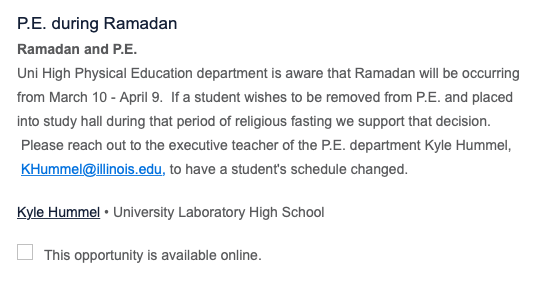Uni students are locking themselves into careers too early
The academically obsessive nature of Uni puts immense pressure on students to define a future for themselves before they feel comfortable making such a decision. It’s no secret that the primary motivator of Uni students is the prospect of getting into a highly selective college. Uni students are highly aware that, in order to gain acceptance into these institutions, they need to frame themselves as focused and career-driven students who have taken steps to prepare for their futures. To stand out to admissions officers, many students build up achievements in one or two specialized areas – this is called a “spike”. However, building a spike takes years, and often places students on a career path at the beginning of high school or earlier. By pigeon-holing themselves into college and career paths in their early teens, Uni students are risking higher chances of future discontent and regret regarding career choices.
According to data published by the National Center for Education Statistics, 33% of students working towards their bachelor’s degree change their major at least once in the first three years of enrollment. This number rises to 35% for incoming STEM majors, and peaks at a startling 52% for math majors. These surprisingly high rates point out the obvious: teenagers often don’t know what they want to do for the rest of their lives.
In order to change majors, the student naturally needs to be exposed to options outside of their preexisting focus. Here is where Uni students run into issues: by focusing on one subject for all of high school, we close doors for ourselves before they even open. Furthermore, Uni does not offer a very diverse curriculum – there are subjects that even a very balanced student could learn nothing about through their entire Uni career.
A study from 2016 conducted by the Education Advisory Board suggests that students who change their major at some point in their college career have a higher graduation rate. Though initially baffling, this statistic is quite logical: students who are able to pivot their attention to something genuinely more interesting to them are more likely to graduate than students being forced into subjects they don’t care about.
It is important to acknowledge that some Uni students feel like they have no control over their high-school extracurriculars, their major, or even their career. However, the culture at Uni that encourages students to isolate one area of interest and shut out any other options needs to change. Even if college blogs claim that a “well-rounded” student has a lower chance of getting into an Ivy League school, a well-rounded student is more likely to experience stability and satisfaction later in life. As we enter winter break, I urge Uni students to take these two weeks to reflect on their priorities – instead of seeing broader exploration as a weakness, we should work to redefine it as a sign of openness, flexibility, and maturation.
I am a senior at Uni High. I love sports but my favorite teams don't seem to love me back. My favorite hobbies are listening to music and driving.

